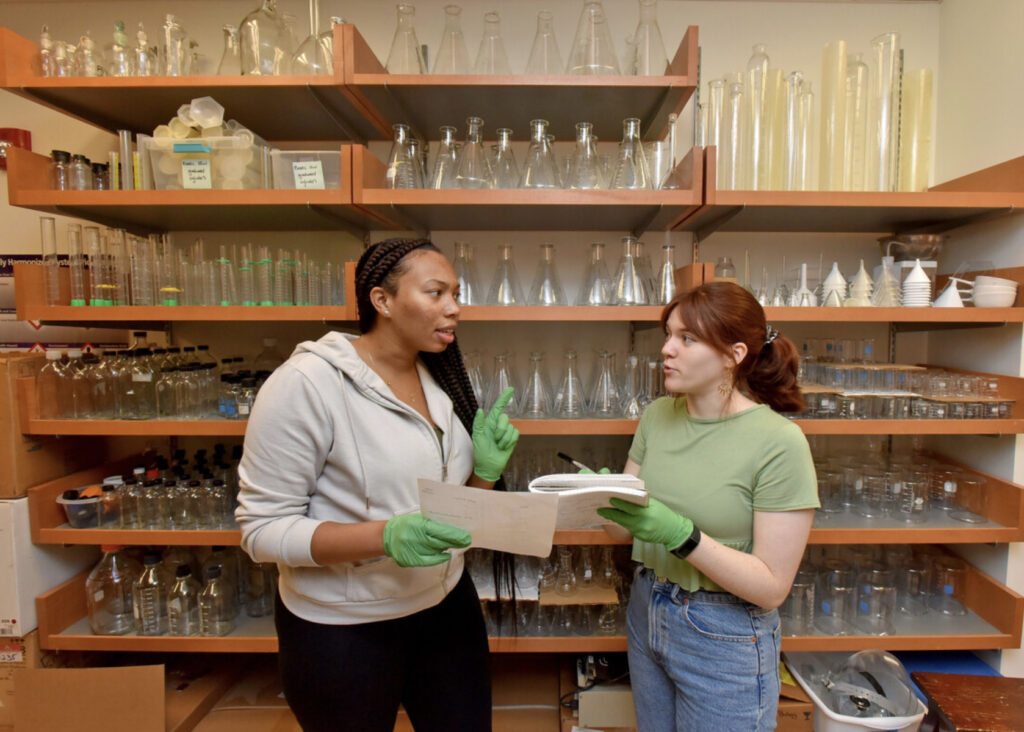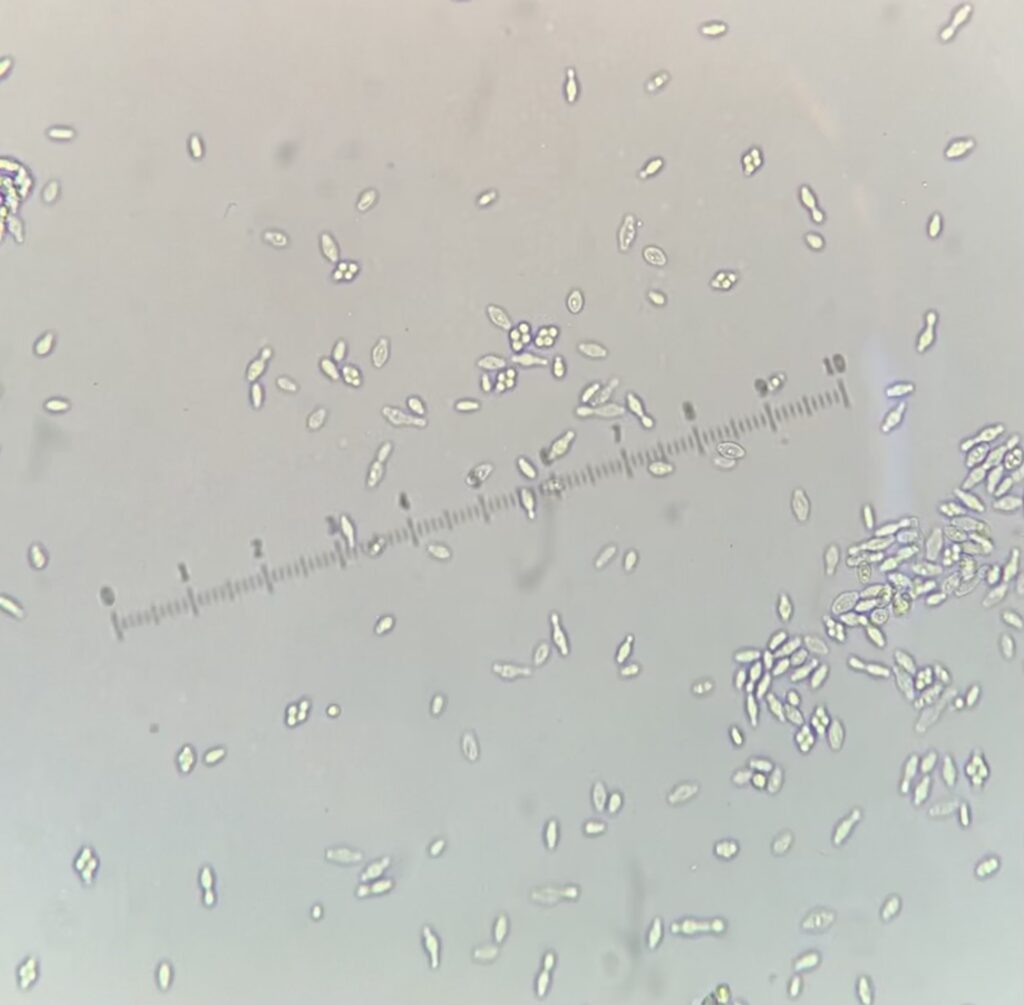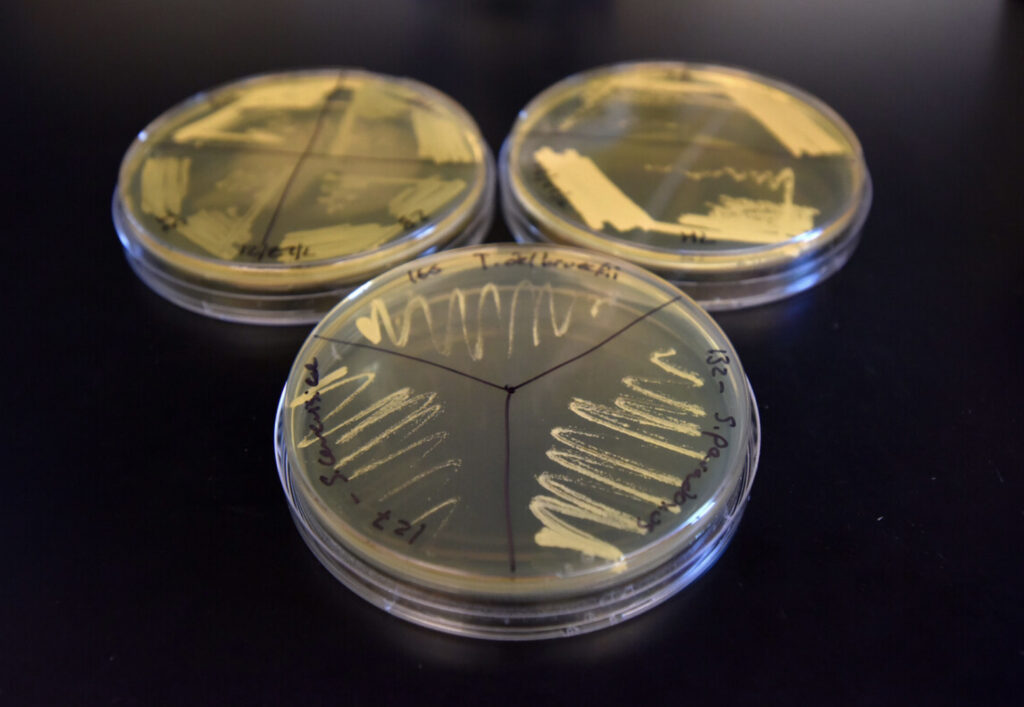Prevalence of Saccharomyces Yeast in the Wheaton Woods

By: Meghan Reed (she/her/hers), Biology, Class of 2022 & Melane Goncalves (she/her/hers), Biology, Class of 2022
Nominating Professor: Primrose Boynton
When most people think of yeast, they imagine beer and bread, not the yeast naturally found in the environment. Yeasts are single celled fungi, and while they help to produce delicious food and drink, these microorganisms are found in the soil beneath our feet. During the summer of 2021 we set out to collect soil samples within the Wheaton Woods with the goal of establishing a starter collection of yeasts in order to determine the way in which such yeast populations in New England change over a 10 year time period, as climate change increases temperatures around the world. Our research focuses primarily on the change of two types of yeast within in the Saccharomyces genus: Saccharomyces cerevisiae, which is baker’s yeast, and Saccharomyces paradoxus, which is a wild yeast that is closely related to baker’s yeast. They are typically found near oak trees beneath leaf litter. The Wheaton Woods is full of oak trees, which made sample collection easy.
During our collection and determination of yeast species we found and cultured over a hundred colonies of yeast. We have yet to identify them all, but we found a total of four Saccharomyces yeasts, all being S. paradoxus. We also found multiple wild yeast and were able to add them to our growing collection. These wild yeast can be used for future comparison of yeast diversity within the Wheaton Woods soil. The discovery of these yeast was both an expected and unexpected result. While we started off this project knowing very little about yeast biodiversity and wild yeasts, discovering just how many different types of yeast and how many colonies we can find in just one soil sample was eye opening and an exciting prospect. Finding S. paradoxus in the cooler climates of New England was a wanted and expected result.

Our personal goals were to explore fungal interactions in nature as well as gain valuable research and collaborative experience that will help us both transition into our post graduate plans. Meghan has had prior experience working in a laboratory with Professor Primrose Boynton and intends to pursue graduate studies in microbiology. Our research gave her the opportunity to strengthen her laboratory skills while also exploring her own microbiology research interest. Melane on the other hand has had very minimal research experience prior to our research and is intending on attending PA school. Our research allowed her to develop collaborative laboratory skills that she intends on applying in her future career as a PA.
So, while starting this collection of yeasts in Massachusetts we also ran our own experiments while surveying for Saccharomyces yeasts. These included a statistical analysis of the number of Saccharomyces yeast colonies found v. leaf litter depth, and of the number of Saccharomyces yeast colonies found v. soil moisture level.
We had hypothesized that more leaf litter would lead to higher yeast biodiversity and more yeast colonies found. We had also hypothesized that more moisture would lead to higher yeast biodiversity and more yeast colonies found. To our surprise both experiments proved to be statistically non-significant, as there was no correlation between leaf litter depth and yeast colonies, and no correlation between soil moisture and yeast colonies. While it may seem as though we produced no results, we actually ruled out factors that affect the presence of yeast, and are now aware that more research in this area is needed. This further motivates us, and future members of the project to continue experimenting with environmental factors of yeast biodiversity.

From our research we were able to utilize and strengthen our lab and interpersonal skills and work in a non-classroom and more professional setting. This experience allowed us to grow as students, individuals, and yeast researchers. We developed a love and increased knowledge of yeast, and look forward to furthering this interest and our skills in the future.
-
Categories:
- Academic Festival
- Academics
- Biology